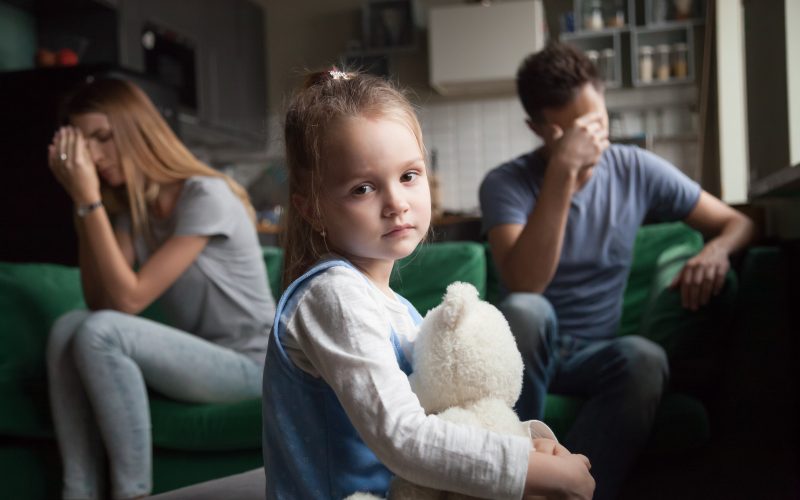It’s possible to both love your children and regret having them – though very few parents would actually admit to those dual feelings. R.O. Kwon, author of the novel “Exhibit,” joins host Krys Boyd to discuss her interviews with parents who are made to feel like monsters because they wish their lives had taken different paths, how love for offspring doesn’t play into the conversation, and her own certainty that she never wants to be a mother. Her article “The Parents Who Regret Having Children” was published in Time.
Pressure on parents creates undue shame
By Sophia Anderson, Think Intern
There are few thoughts considered too shameful to speak aloud, especially to a therapist. But parents who regret having children often hide this feeling from everyone in their lives, for fear of being judged.
Author R. O. Kwon knew from personal conversations and online polls that a significant number of parents experienced regret, but had an extremely difficult time finding parents who would speak on the record. She eventually sourced enough interviewees to write an article on the subject for TIME, titled “The Parents Who Regret Having Children,” though she quoted individuals using pseudonyms, at their request.
“What other human experience out there is it true that experiencing a little bit of regret, and maybe profound regret is itself viewed as being monstrous?” R.O. asked.
Why do peers, and strangers, have such vehement opinions about how parents should feel about their children? Perhaps it’s out of sympathy for children who are unwanted to a certain extent. Imagine finding out your parent was fantasizing about a child-free life. That would be crushing.
But R.O. says that parents with doubts don’t necessarily love their children any less than parents who are confident in their decision to reproduce.
“Many parents who realize they might have been happier not raising children seem to be working just as hard as all the parents who cannot imagine any other life for themselves,” R.O. said “The parents I spoke to for this piece, they love their children, they care about their children.”
While R.O. found that children of parents with regrets don’t have worse childhoods than their playmates with steadfastly committed parents, she did find that children of women who were denied abortions did fare worse than their peers. The difference? These women knew they weren’t prepared to have children before their child was even born.
Since raising children is a sizable financial burden minimally offset by social support, lack of preparedness can negatively impact a child’s upbringing.
Yet the expectation is often that adults, women especially, will have kids and like it. R.O. said she has “never felt the desire in [her] body” to have children. Since she would be the only person in her marriage to physically carry a child for nine months, the physical desire is especially pertinent. But R.O. has had everyone from her grandmother to a taxi driver tell her she’s bound to change her mind.
There are potentially several factors driving this insistence that women bask in the joys of motherhood. Perhaps it’s difficult for people to think about the fact that their parents might have been just as happy – or happier – had they pursued a childfree path. Or maybe hearing that other parents have regrets make couples question their own choices.
R.O. interviewed a psychotherapist for her article, who said that many parents have the “expectation that all parents experience pure joy 100% of the time.” This unrealistic picture of parenthood puts undue pressure on parents to never struggle with their taxing roles as caretakers for which the most profound joy can’t always compensate.
Ultimately, R.O. encourages readers and listeners to shift the dialogue around having children. The choice to have children – or not – is deeply personal, and supporting either choice is the best way to ensure people aren’t pressured into decisions they might later regret.





